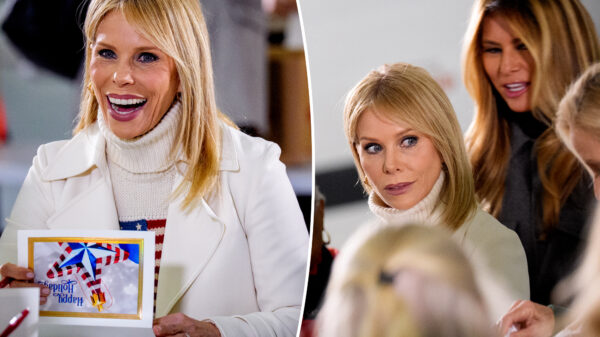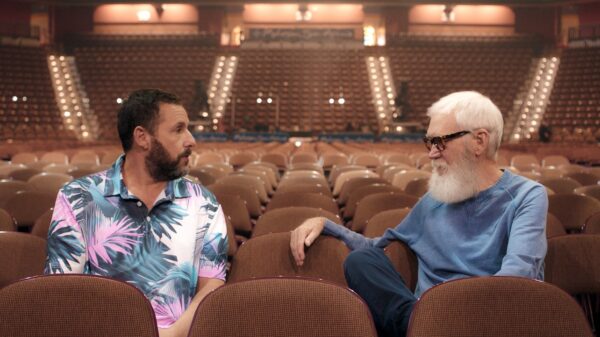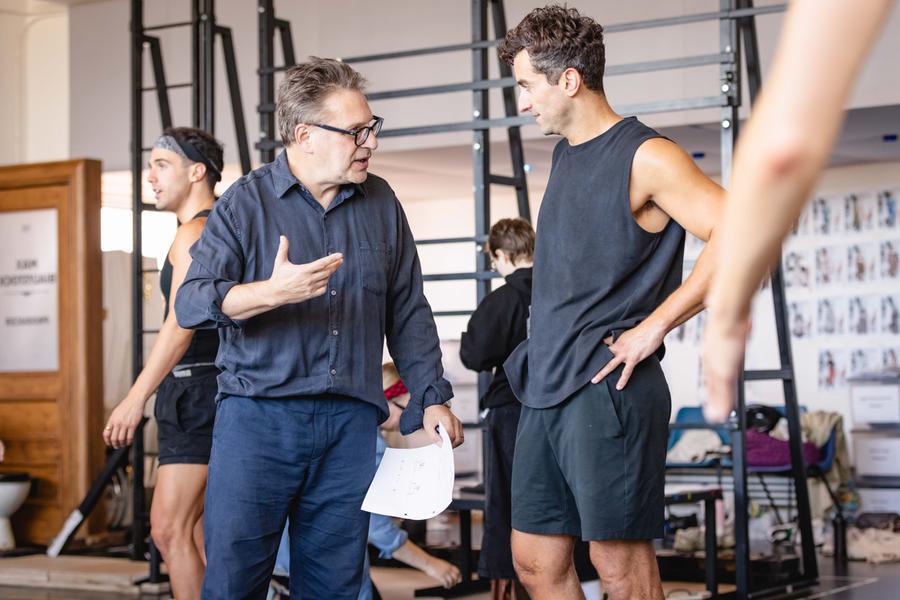Patrick Marber, the acclaimed playwright and director, is navigating the complexities of identity and antisemitism in contemporary theatre. Known for his award-winning play Closer and his recent production of Tom Stoppard’s Leopoldstadt, Marber has now taken the helm of Mel Brooks’s The Producers, which recently transferred to the West End after a successful run at the Menier Chocolate Factory.
Set against a backdrop of rising far-right sentiment, Marber’s interpretation of The Producers features a musical comedy that, while humorous, tackles serious themes. Reflecting on the current climate, he notes, “The film [released in 1967] was 20 years after the end of the war. I think it would have been shocking and dangerous back then… now, with the rise of the ‘new right’ and actual swastikas in America – less so here, thank God – I didn’t have to do much to make it feel relevant and potent.”
Marber, who describes himself as a “Jew director,” embraces this label while acknowledging the impact of his Jewish heritage on his recent work. His exploration of Jewish themes is evident in plays like Howard Katz and his upcoming projects, including Nachtland by Marius von Mayenburg, which delves into the repercussions of a family’s discovery of a Hitler painting.
He aims to portray the Jewish identity authentically in The Producers, stating, “I wanted to convincingly portray Max and Leo as Jews… There would be more fun to be had in their relationship with [the Nazi] Franz Liebkind and their relationship to Springtime [With Hitler].” This commitment to authenticity reflects Marber’s desire to present Jewish characters in a nuanced manner, regardless of the actors’ backgrounds.
As he discusses his personal connection to Jewish culture, Marber admits that his interest has evolved with age. “I’d have loved to have been able to walk these streets when they were Jewish and feel what that was like,” he reflects. He attributes this newfound interest in his Jewish identity to the contemplation of mortality. “Death… the imminence; the contemplating of,” he shares candidly.
Marber’s perspective on antisemitism is both humorous and poignant. He acknowledges the complexities of belonging to an ethnic minority in a society that has not always been supportive. “I grew up [in Wimbledon] feeling the hatred… I accept the blows that occur and the abuse,” he explains. His sons, who are 19, 21, and 23, increasingly identify as Jewish, often facing anti-Jewish comments on the street.
“The worst thing is to be beaten up by them,” he says, flipping a Tennessee Williams line on its head. “But someone going ‘Jew!’? Well, you are!” This blend of levity and seriousness underscores Marber’s approach to his craft and the societal issues he grapples with.
The conversation shifts to the state of contemporary Jewish culture and the artist’s responsibility in addressing these themes. Marber expresses his desire for a liberal culture that looks outward rather than confines itself. He emphasizes the need to denounce actions in Gaza and the West Bank that contradict Jewish values, suggesting a broader moral obligation to advocate for justice.
As The Producers continues to captivate audiences at the Garrick Theatre, Marber’s work resonates not only for its comedic elements but also for its deeper commentary on identity, culture, and the challenges faced by Jewish communities today. With an eye on the future, he anticipates further explorations of musical theatre, following his inaugural venture into this genre.
Patrick Marber’s journey reflects a blend of personal introspection and cultural examination, making his contributions to theatre not only entertaining but also profoundly relevant in today’s world.






































































